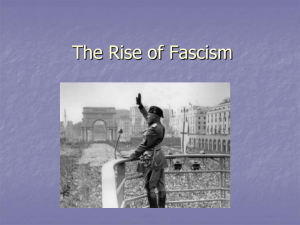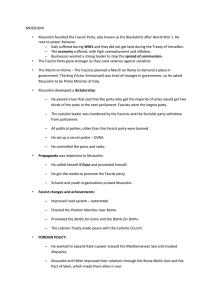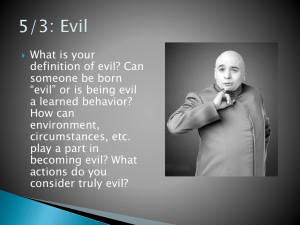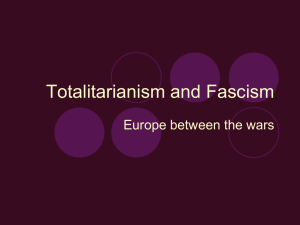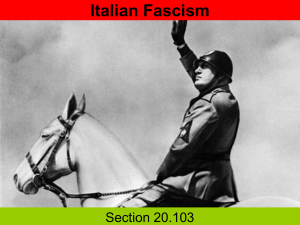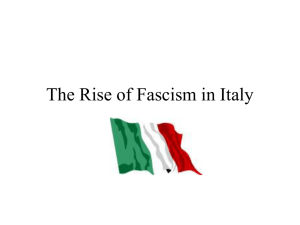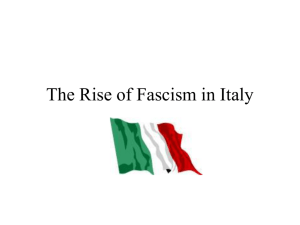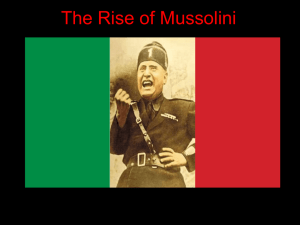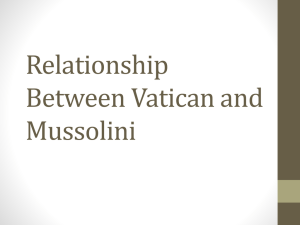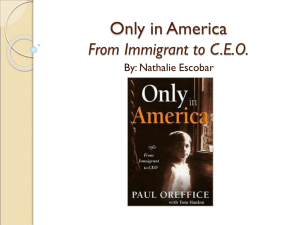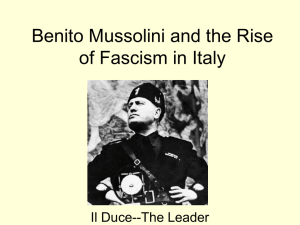1—Mussolini and the Rise of Fascism I. Even though Italy was
advertisement
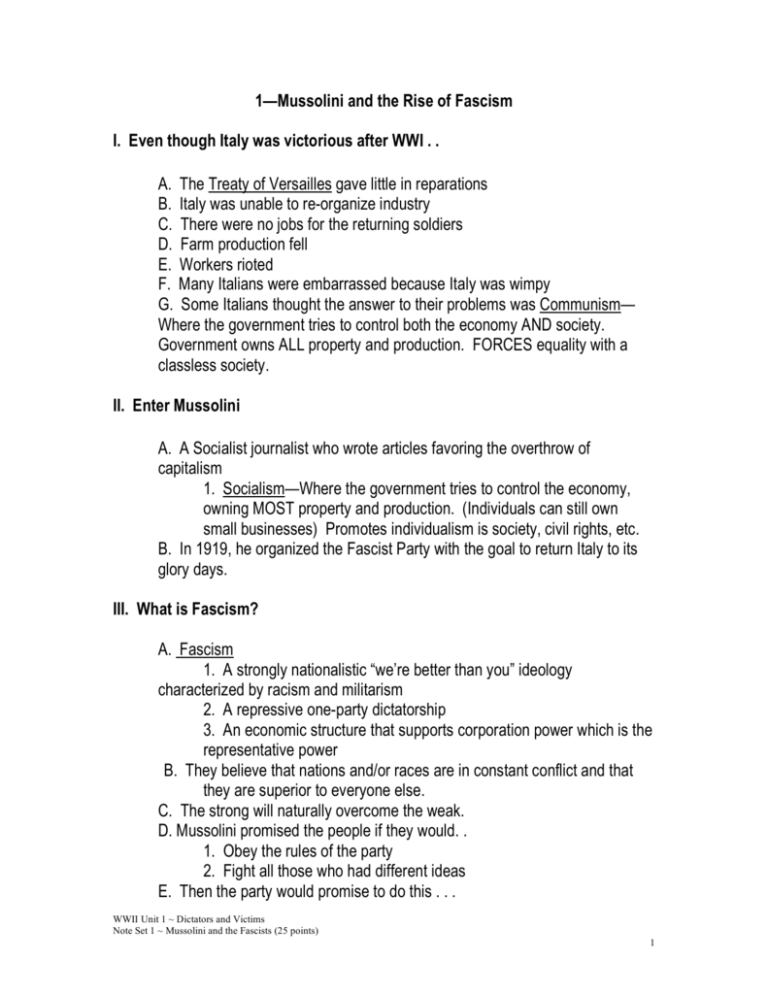
1—Mussolini and the Rise of Fascism I. Even though Italy was victorious after WWI . . A. The Treaty of Versailles gave little in reparations B. Italy was unable to re-organize industry C. There were no jobs for the returning soldiers D. Farm production fell E. Workers rioted F. Many Italians were embarrassed because Italy was wimpy G. Some Italians thought the answer to their problems was Communism— Where the government tries to control both the economy AND society. Government owns ALL property and production. FORCES equality with a classless society. II. Enter Mussolini A. A Socialist journalist who wrote articles favoring the overthrow of capitalism 1. Socialism—Where the government tries to control the economy, owning MOST property and production. (Individuals can still own small businesses) Promotes individualism is society, civil rights, etc. B. In 1919, he organized the Fascist Party with the goal to return Italy to its glory days. III. What is Fascism? A. Fascism 1. A strongly nationalistic “we’re better than you” ideology characterized by racism and militarism 2. A repressive one-party dictatorship 3. An economic structure that supports corporation power which is the representative power B. They believe that nations and/or races are in constant conflict and that they are superior to everyone else. C. The strong will naturally overcome the weak. D. Mussolini promised the people if they would. . 1. Obey the rules of the party 2. Fight all those who had different ideas E. Then the party would promise to do this . . . WWII Unit 1 ~ Dictators and Victims Note Set 1 ~ Mussolini and the Fascists (25 points) 1 a. They promised jobs to the unemployed b Promised land to the peasants c. Protection from communism d. Workers, farmers, and property owners could find something to like! IV. Mussolini challenges King Victor Emmanuel III A. With enough followers, Mussolini marches on Rome. B. Civil war seemed near, so the wimpy king just gave Mussolini the position of Premier, which is the head of the legislative body . . . like our “speaker of the house.” 3. Soon the Fascists controlled the Italian legislature. 4. Democracy in Italy fell . . . Dictatorship took its place. 5. Mussolini has all the power, controlling the king and the legislature. III. Life under fascism A. The press was censored B. Personal rights crushed C. Rival political parties were outlawed D. Only Fascists could vote E. School children were taught to believe, obey, and fight. 1. War was natural to boys 2. Having lots of babies was natural for girls F. Italians were told that they were better than other nations. G. They were told to build up their military strength in order to defeat the "corrupt Democracies"—The right to government is vested in the citizens and exercised through a majority rule. H. And Mussolini made a deal with the pope. 1. He would declare Cat holism as the national religion if 2. The pope would look the other way at all the rights citizens’ lots. 3. The pope bought it IV.Mussolini's corporate state A. He combines the politics with the economy. B. So a corporate state—is one where the legislative representation is by business types NOT geographic regions C. This “corporate legislative branch” decided 1.What to make WWII Unit 1 ~ Dictators and Victims Note Set 1 ~ Mussolini and the Fascists (25 points) 2 2. The profit margin 3.Strikes were forbidden B. With all the restrictions, business boomed V. For the first ten years, Fascism for Italy seemed to be "pushing up daisies" A. Other countries envied a nation free of strikes and labor troubles. B. The governments was efficient . . . “the trains ran on time.” C. But the next ten years . . . that proved to be stormy, but that's another story for a later time . . . WWII Unit 1 ~ Dictators and Victims Note Set 1 ~ Mussolini and the Fascists (25 points) 3

